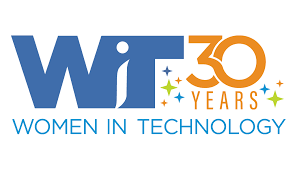The Impact of Technology on Society
Technology has become an integral part of our daily lives, shaping the way we communicate, work, and interact with the world around us. From the invention of the wheel to the rise of artificial intelligence, technological advancements have revolutionised human society in profound ways.
One of the key impacts of technology is its ability to connect people across vast distances. The advent of the internet and social media has transformed how we communicate, allowing us to stay in touch with friends and family regardless of geographical boundaries. This interconnectedness has also facilitated global collaboration and knowledge sharing, leading to unprecedented levels of innovation and progress.
In the workplace, technology has streamlined processes and increased efficiency. Automation and digital tools have revolutionised industries such as manufacturing, healthcare, and finance, enabling companies to produce goods and services at a faster pace with greater precision. However, this technological shift has also raised concerns about job displacement and the need for upskilling in a rapidly changing job market.
Moreover, technology has had a profound impact on education. Online learning platforms have made education more accessible to individuals around the world, breaking down traditional barriers to learning. Students can now access a wealth of information at their fingertips and engage in interactive learning experiences that cater to their individual needs.
As we continue to embrace new technologies such as artificial intelligence, virtual reality, and blockchain, it is essential to consider the ethical implications of these advancements. Issues such as data privacy, algorithmic bias, and cybersecurity must be addressed to ensure that technology benefits society as a whole.
In conclusion, technology plays a pivotal role in shaping our society and will continue to influence how we live and work in the future. By harnessing the power of technology responsibly and ethically, we can create a more inclusive and sustainable world for generations to come.
Exploring Key Questions in Modern Technology: AI, Cybersecurity, and Emerging Innovations
- What is artificial intelligence and how does it work?
- How can I protect my personal data online?
- What are the latest trends in wearable technology?
- How does blockchain technology ensure security in transactions?
- What impact will 5G technology have on mobile networks?
- How do self-driving cars function and what are the challenges they face?
- What is the Internet of Things (IoT) and how does it benefit daily life?
- How can I prevent malware and cyber attacks on my devices?
- What ethical considerations should be taken into account when developing new technologies?
What is artificial intelligence and how does it work?
Artificial intelligence (AI) refers to the simulation of human intelligence processes by machines, particularly computer systems. These processes include learning, reasoning, problem-solving, perception, and language understanding. AI works by using algorithms and models to process large amounts of data, identify patterns, and make decisions or predictions based on that information. Machine learning, a subset of AI, involves training algorithms on vast datasets to improve their accuracy over time without being explicitly programmed for specific tasks. Through techniques such as neural networks and deep learning, AI systems can perform complex tasks like image recognition and natural language processing with increasing efficiency and sophistication.
How can I protect my personal data online?
In an increasingly digital world, protecting personal data online is crucial to safeguarding your privacy and security. To enhance online data protection, it is essential to use strong, unique passwords for each account, enable two-factor authentication where available, and regularly update your software and devices to patch security vulnerabilities. Additionally, be cautious about sharing sensitive information online and avoid clicking on suspicious links or attachments in emails. Utilising reputable antivirus software and being mindful of the permissions granted to apps can also help prevent data breaches and cyber threats. By staying informed about best practices for online data security and exercising vigilance in your digital interactions, you can better protect your personal information from potential risks.
What are the latest trends in wearable technology?
The latest trends in wearable technology encompass a wide range of innovations that are reshaping how we interact with devices and data on the go. From smartwatches and fitness trackers to augmented reality glasses and smart clothing, wearable technology is evolving rapidly to offer users enhanced functionality and convenience. Features such as health monitoring, real-time notifications, and voice assistants are becoming standard in many wearable devices, catering to the growing demand for seamless integration into our daily lives. As the industry continues to push boundaries in design and functionality, we can expect to see even more exciting developments in wearable technology that enhance both our personal and professional experiences.
How does blockchain technology ensure security in transactions?
Blockchain technology ensures security in transactions through its decentralized and transparent nature. When a transaction is recorded on a blockchain, it is stored in a secure and immutable ledger shared across a network of computers, known as nodes. Each transaction is encrypted and linked to the previous transaction, forming a chain of blocks that cannot be altered without consensus from the network. This decentralization eliminates the need for a central authority to verify transactions, reducing the risk of fraud or manipulation. Additionally, the transparency of blockchain allows all participants to view transaction history, promoting trust and accountability in the system. Cryptographic techniques further enhance security by ensuring that only authorized parties can access and modify transaction data, making blockchain technology a robust solution for secure transactions.
What impact will 5G technology have on mobile networks?
The deployment of 5G technology is poised to revolutionise mobile networks by offering significantly faster data speeds, lower latency, and increased network capacity. With 5G, users can expect seamless connectivity for bandwidth-intensive applications like virtual reality, augmented reality, and high-definition video streaming. This advancement will not only enhance user experiences but also enable the Internet of Things (IoT) to flourish, connecting a multitude of devices in a more efficient and interconnected manner. Overall, 5G technology is set to transform mobile networks by providing faster, more reliable connections that will pave the way for innovative services and technologies in the digital age.
How do self-driving cars function and what are the challenges they face?
Self-driving cars, also known as autonomous vehicles, operate using a combination of advanced technologies such as sensors, cameras, radar, and artificial intelligence algorithms. These vehicles rely on real-time data to navigate roads, detect obstacles, interpret traffic signs, and make driving decisions without human intervention. Challenges faced by self-driving cars include ensuring safety in complex driving scenarios, such as unpredictable weather conditions or road construction zones. Additionally, issues related to legal regulations, public acceptance, cybersecurity threats, and ethical dilemmas surrounding decision-making in potential accident situations are key challenges that need to be addressed for the widespread adoption of autonomous vehicles.
What is the Internet of Things (IoT) and how does it benefit daily life?
The Internet of Things (IoT) refers to the network of interconnected devices and objects that can communicate and exchange data with each other over the internet. This technology enables everyday objects, such as smart appliances, wearable devices, and home automation systems, to collect and share information to enhance efficiency and convenience in daily life. By integrating IoT devices into our homes, workplaces, and cities, we can automate tasks, monitor our health and well-being, improve energy efficiency, and enhance overall productivity. The benefits of IoT in daily life include greater connectivity, improved decision-making based on real-time data, enhanced safety and security measures, and a more seamless and personalised user experience across various aspects of our lives.
How can I prevent malware and cyber attacks on my devices?
To safeguard your devices against malware and cyber attacks, it is essential to implement robust security measures. Start by installing reputable antivirus software and keeping it up to date to detect and prevent malicious threats. Be cautious when clicking on links or downloading attachments from unknown sources, as these can be vectors for malware. Regularly update your operating system and applications to patch vulnerabilities that attackers could exploit. Enable firewalls and use strong, unique passwords for all your accounts to enhance security. Additionally, educate yourself on common phishing tactics and stay vigilant against suspicious emails or messages that may attempt to trick you into disclosing sensitive information. By staying proactive and adopting a multi-layered approach to cybersecurity, you can significantly reduce the risk of malware infections and cyber attacks on your devices.
What ethical considerations should be taken into account when developing new technologies?
When developing new technologies, it is crucial to consider a range of ethical considerations to ensure that the impact of these innovations is beneficial for society. One key aspect is data privacy and security, as collecting and storing personal information raises concerns about confidentiality and misuse. Additionally, issues such as algorithmic bias and discrimination must be addressed to prevent unfair treatment based on factors like race, gender, or socio-economic status. Transparency in how technology operates and making decisions accountable are also essential to build trust with users. Moreover, the long-term consequences of new technologies on employment, social relationships, and individual well-being should be carefully evaluated to mitigate any potential negative effects. By prioritising these ethical considerations throughout the development process, technology can be harnessed for positive societal change.




